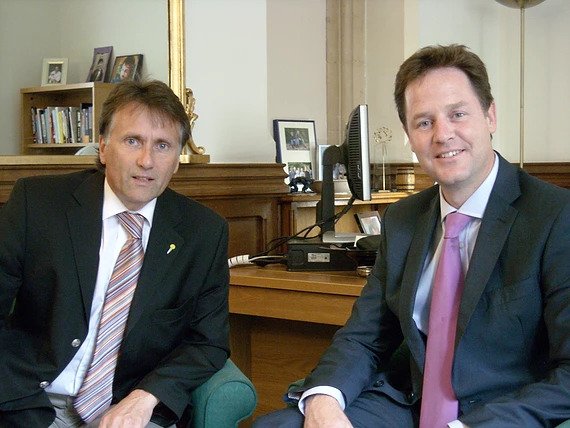
As Nick Clegg’s biographer, I have always tried to stay above – or detached from – events involving him, so I can judge them dispassionately. But I can’t help feeling an intense seam of sadness at the news that he has accepted a senior role with Facebook. In fact it feels like something of a betrayal.
One can argue till the cows come home about Clegg’s political legacy. Personally, I think he gave the British people what they wanted in 2010 – only once they got it, they realised it wasn’t what they wanted after all. He rose to the top of the Liberal Democrats at a time when politics was in very low repute following various scandals, culminating in the expenses revelations of 2009. So he went into the 2010 general election saying he would offer a different politics, one based more on how people resolve problems in their everyday lives rather than the ‘yah boo sucks’ approach of the stereotypical braying politician.
So when he hit the issues of higher education tuition fees and NHS reforms, instead of saying “No, that’s what we said, we ain’t budging!” he tried to do what a good mediator does – to work out what the various interests are and come up with a solution that satisfies everyone. The tuition fees deal isn’t great, but it’s a lot less bad than it might have been. The NHS is a different story because the Lib Dems were ambushed by that, but Clegg went into the 2010-15 coalition with a constructive attitude. The fact that he failed – due to a mixture of bad PR work and the people deciding they preferred to hate politicians rather than give them the benefit of the doubt – led to the Lib Dem drubbing of 2015.
Nick is not the same kind of liberal as I am: he is essentially on the centre-right, someone whose conscience meant he could never join the Conservatives but Labour were out of the question, while I am more comfortable with Labour people even though I wouldn’t be at home in the Labour party. But I was always willing to give him the benefit of the doubt because (a) he listened and tried to give people what he thought they were asking for, and (b) he’s a fundamentally decent guy.
However, since his political career ended 16 months ago, he has made two decisions which suggest he has lost his antenna for the creed of liberalism. Firstly he accepted a knighthood when his party was still picking itself off the floor after its 2015 nightmare. And now he has accepted a job with Facebook, the company not just involved in various cases of questionable electoral practice (see my Elections for Sale? Report from 2016) but with a culture of secrecy that refuses to give reasonable journalistic enquiries a fair hearing.
Because I know what goes into public service, I am generally quite relaxed about people who give their time to public life and then go off and earn some good money in the private sector. But for Nick Clegg to take the poisoned dollar of a company whose ethos is pretty much the diametric opposite of the openness of the liberal creed suggests he has lost his moral compass. It is this that makes me use the word ‘betrayal’ about his decision to join Facebook.
Clegg has not become a bad person overnight, and he’s not the only Lib Dem to accept a knighthood (Vince Cable and Ed Davey mean 16.6% of current Lib Dem MPs have knighthoods, a somewhat farcical situation made marginally better by the fact that neither man makes much use of the ‘Sir’). But he might have waited 10 years until the dust has settled, and he surely should have been aware of the electoral reputation of Facebook in the very year the Cambridge Analytica scandal broke.
For me, it means I must revise my opinion that history will eventually treat Nick Clegg kindly – unless he has a change of heart over this job, I now don’t think it will.
